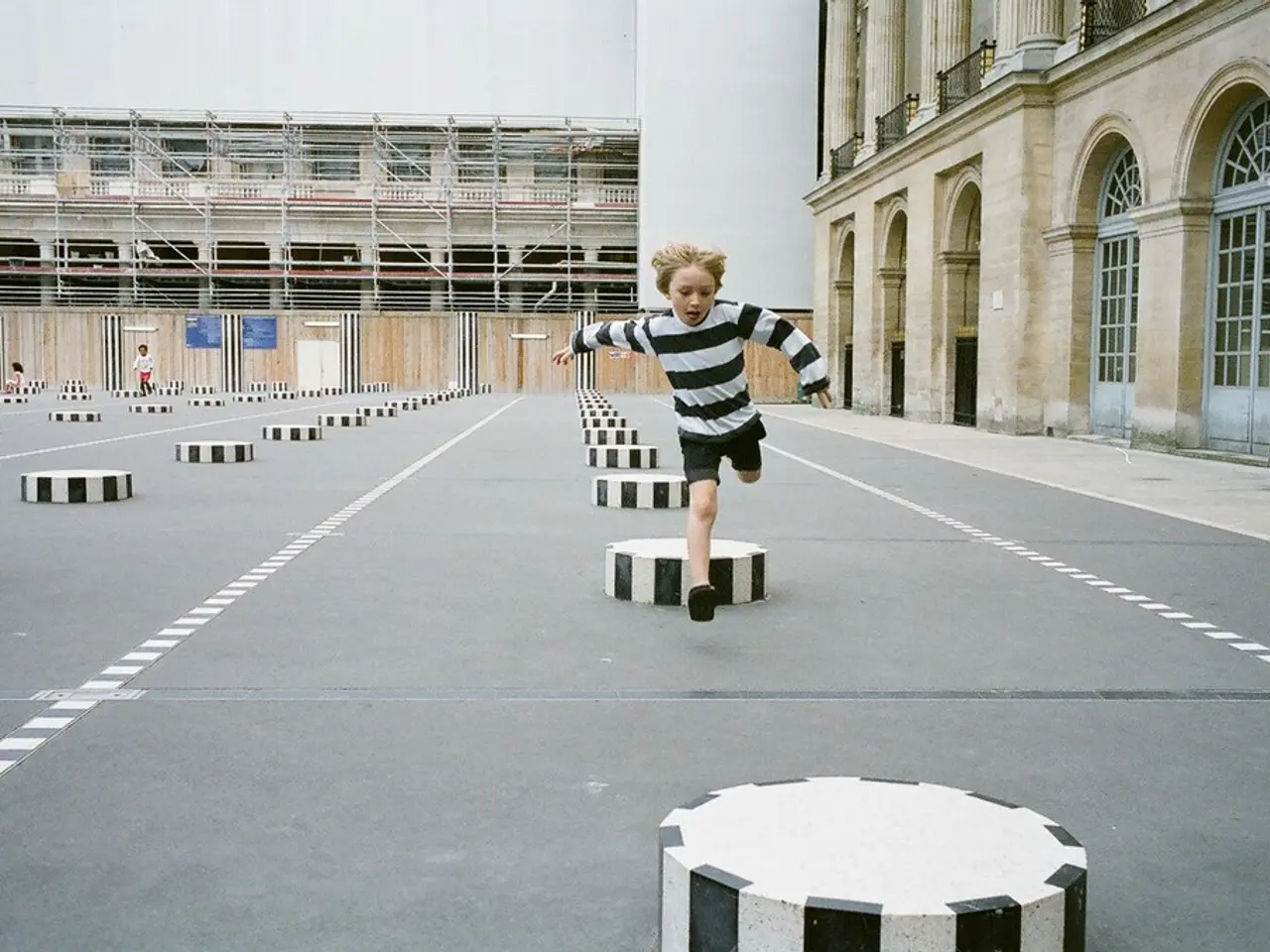Investigating Interactive Education at Museo Dei Bambini Lecce
Play-based learning is increasingly being recognised as a crucial element in the healthy development of children, with a wealth of research supporting its benefits across various domains.
According to leading institutions such as the Harvard Center on the Developing Child and the LEGO Foundation, play is essential for building essential skills like executive function and self-regulation, which form the foundation for learning and life. Play-based experiences provide a low-stakes, engaging environment where children can practice decision-making, impulse control, and flexible thinking.
The LEGO Foundation emphasises that play is a biological necessity, particularly for children between the ages of 2 and 7. It supports brain development by connecting neural pathways, promoting creativity, and building problem-solving skills. Play also nurtures social and emotional competencies such as collaboration, empathy, and emotional regulation.
The American Academy of Pediatrics (AAP) also acknowledges the importance of play, stating that it enhances brain structure and function, supports the formation of secure attachments, and builds skills necessary for executive function and academic success.
Research shows that play-based learning is particularly effective in supporting cognitive development. Through play, children explore concepts, experiment with ideas, and develop problem-solving abilities. Play also fosters creativity, cooperation, and emotional intelligence, providing a safe space for children to navigate social relationships, resolve conflicts, and express emotions.
Active play promotes motor skills, coordination, and overall physical health, while positive emotions like joy and interest, which are central to play, broaden children’s thought-action repertoires and build lasting personal resources. This not only enhances learning but also contributes to long-term well-being.
Play-based learning can also help address equity gaps by providing all children, including those from marginalized communities, with developmentally appropriate, engaging learning experiences.
Modern educational trends sometimes prioritise academic rigour over play, especially in early childhood settings. However, research consistently shows that integrating play—through free, guided, and teacher-directed methods—leads to deeper engagement, inquiry, and developmental growth. Play is not a distraction from learning; it is the mechanism through which young children learn most effectively.
As Albert Einstein once said, "Play is the highest form of research."
In conclusion, the convergence of research from Harvard, the LEGO Foundation, and the AAP underscores that play-based learning is not a luxury but a necessity for healthy child development. It builds the cognitive, social, emotional, and physical foundations that enable children to thrive in school and beyond. Policymakers and educators are urged to prioritise play in early childhood curricula to ensure equitable, effective, and joyful learning for all children.
Parents can also support play-based learning at home by giving children time, space, and permission to follow their ideas. Asking questions like "What are you building?" or "What will happen next?" can help children lead their learning through play. Play-based learning is an approach that uses play as the primary context for learning, driven by children's interests and choices.
For more information on the importance of play-based learning, resources such as the Harvard Center on the Developing Child, The LEGO Foundation, AAP, and Play and Learning in Nature Human Behaviour are excellent starting points.
The 'Harvard Center on the Developing Child' and 'The LEGO Foundation' suggest that incorporating play into a child's 'lifestyle' can significantly support their 'education-and-self-development', as play-based learning fosters essential skills like decision-making, impulse control, and emotional regulation. Parents can further facilitate this learning process at home by adopting a 'home-and-garden' environment that encourages open-ended play, fostering creativity, problem-solving, and social skills. Additionally,the 'American Academy of Pediatrics' emphasizes that play plays a crucial role in not just cognitive development but also in enhancing brain structure and function, promoting secure attachments, and building skills necessary for a child's overall well-being and academic success.




